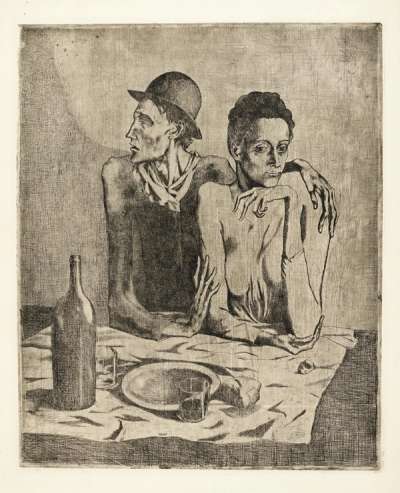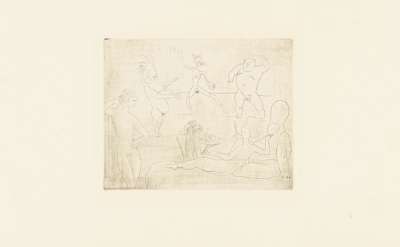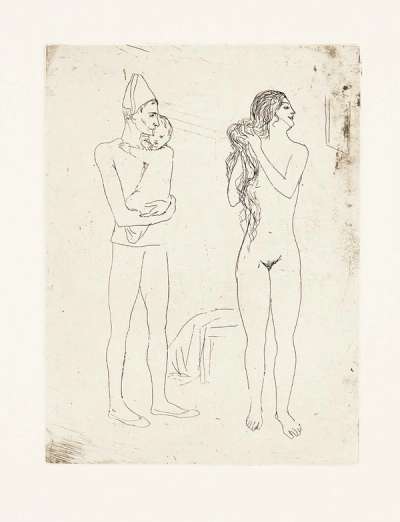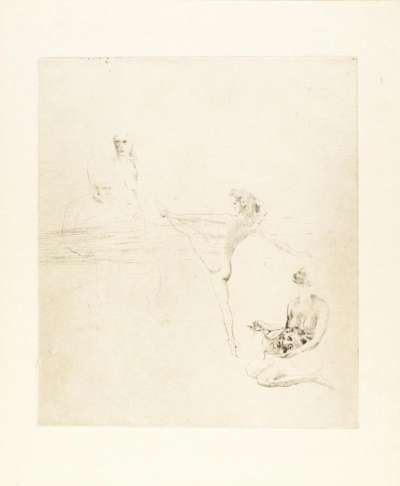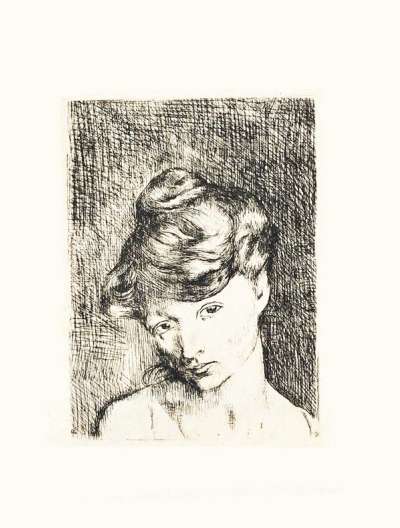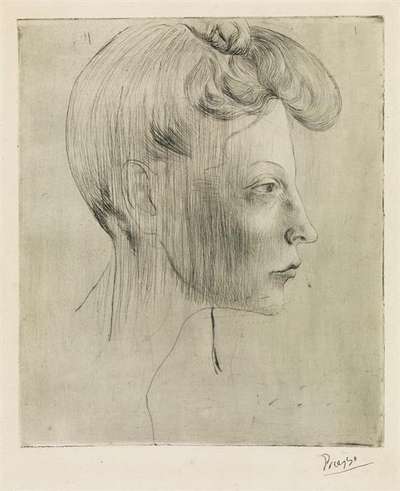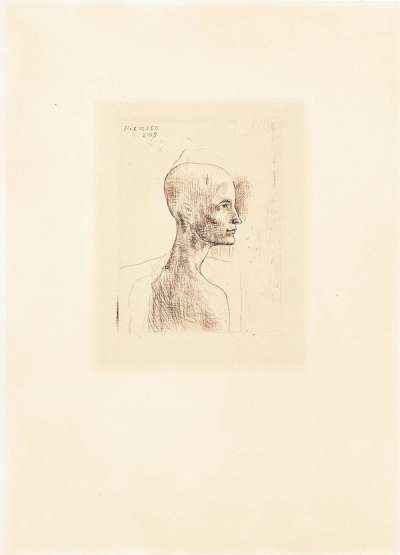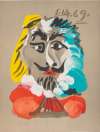La
Suite Des Saltimbanques
Pablo Picasso's La Suite Des Saltimbanques, a series of etchings produced in the early 20th century, delves into the world of itinerant circus performers. This collection, one of Picasso's earliest ventures into printmaking, reveals a tender, introspective narrative on the themes of poverty, isolation, and the transient life, reflecting a significant period of artistic and personal development for Picasso.
Pablo Picasso La Suite Des Saltimbanques For sale
La Suite Des Saltimbanques Value (5 Years)
Works from the La Suite Des Saltimbanques series by Pablo Picasso have a strong market value presence, with 118 auction appearances. Top performing works have achieved standout auction results, with peak hammer prices of £152716. Over the past 12 months, average values across the series have ranged from £2659 to £148120. The series shows an average annual growth rate of 0.59%.
La Suite Des Saltimbanques Market value
Auction Results
| Artwork | Auction Date | Auction House | Return to Seller | Hammer Price | Buyer Paid |
|---|---|---|---|---|---|
 Le Repas Frugal Pablo Picasso Unsigned Print | 18 Oct 2025 | Mainichi Auction, Osaka | £59,500 | £70,000 | £80,000 |
 Tête De Femme: Madeleine Pablo Picasso Unsigned Print | 6 Jun 2025 | Karl & Faber | £2,125 | £2,500 | £3,400 |
 Buste D'Homme Pablo Picasso Unsigned Print | 19 May 2025 | Leonard Joel, Melbourne | £2,253 | £2,650 | £3,300 |
 Le Bain Pablo Picasso Unsigned Print | 1 Feb 2024 | Phillips London | £3,485 | £4,100 | £5,500 |
 La Danse Barbare Pablo Picasso Unsigned Print | 8 Mar 2023 | Freeman's Online | £850 | £1,000 | £1,400 |
 Salomé Pablo Picasso Unsigned Print | 25 Nov 2022 | Ader | £7,650 | £9,000 | £12,500 |
 Le Saltimbanque Au Repos Pablo Picasso Unsigned Print | 25 Nov 2022 | Ader | £2,295 | £2,700 | £3,750 |
 Tête De Femme De Profil Pablo Picasso Unsigned Print | 24 Oct 2022 | Phillips New York | £5,100 | £6,000 | £8,500 |
Sell Your Art
with Us
with Us
Join Our Network of Collectors. Buy, Sell and Track Demand
Meaning & Analysis
La Suite Des Saltimbanques, executed between 1904-05, marks a pivotal moment in Pablo Picasso's career, coinciding with his Blue Period. This series of etchings offers a poignant exploration of the lives of circus performers, a motif that fascinated Picasso and recurred throughout his work. The series includes notable pieces such as Le Repas Frugal, Tête De Femme: Madeleine, Buste D'Homme, and La Danse Barbare, among others, each providing a window into the sombre and poetic world of the saltimbanques.
Picasso's engagement with the saltimbanques, a French term for acrobats or street performers, serves as a metaphor for the artist's own sense of alienation and outsider status during his early years in Paris. The subjects of these prints, often depicted alone or in intimate groups, convey a profound sense of introspection and melancholy, characteristics that define Picasso's Blue Period. Through La Suite Des Saltimbanques, Picasso not only captures the physicality of his subjects but also their psychological depth, using the simplicity of line and shadow to evoke complex emotional landscapes.
This series also underscores Picasso's technical experimentation with etching, a medium that allowed him to explore texture, line, and form with newfound subtlety and precision. Works such as Le Repas Frugal exemplify Picasso's mastery of etching, combining technical rigour with expressive freedom to capture the stark realities of his subjects' lives.
